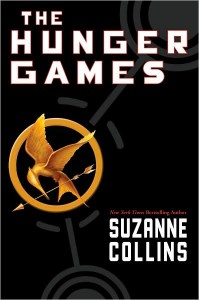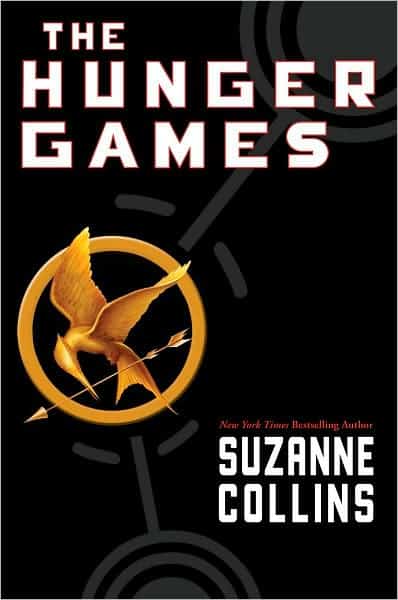 I would like to claim, unsupported by any actual “facts” or “evidence” mind you, that the word dystopia has been used more frequently to describe Susanne Collins’ The Hunger Games (Now a Major Motion Picture!) than any book since Aldous Huxley’s Brave New World crashed upon us in 1931. And I can understand why.
I would like to claim, unsupported by any actual “facts” or “evidence” mind you, that the word dystopia has been used more frequently to describe Susanne Collins’ The Hunger Games (Now a Major Motion Picture!) than any book since Aldous Huxley’s Brave New World crashed upon us in 1931. And I can understand why.
It’s a strange world that she paints with her jagged and adrenaline inducing words. A world in which children are forced to kill one another; taught to do so with glee. Dark gladiatorial games are televised in this world, like a post apocalyptic mixture of Teen Mom and Joseph Kony’s rants. Collins’ strange world bestows celebrity for terrible deeds and then depicts such celebrity as a powerful manipulation tool. Hers is a world of totalitarian governments and continually untrustworthy authorities. Poverty is immediate and debilitating for the many in this strange world, externalized and lifestyle preserving for the few. Then again, perhaps her world is not so strange to us after all.
The erudite amongst us may already know that the word dystopia was coined in 1868 by John Stuart Mill1 to describe just how misshapen some of the proposed anti-Irish land policies of the British government were. In order to invert the meaning of St. Thomas More’s Utopia, that non-existing perfect land, Mill added the preface “dys”, which in Greek means bad, ill, or unhappy.2 It’s into our own dystopic world that the teenagers to whom Collins is writing have been thrown. And I think it’s fair to say that, like Katniss herself, many teenagers feel trapped and angry and don’t put much trust in either authority or institutions.3 Not a few among us may even resonate with the despairing fact that Katniss is forced to threaten suicide in order to claim some power over the makers of the Hunger Games.
So, where does this leave us? I don’t claim to be entirely sure. The plot of The Hunger Games is as compelling and absorbing as any I’ve ever come across. I’ve read the book twice and I’m sure I will again. And I’ll be in a theater somewhere on the west coast this weekend feeling the thrill of the games, and rooting for Katniss. But maybe the three thousand times I’ve heard dystopia used to describe Collins’ world in recent weeks will echo in my mind as I watch. Maybe those echoes will clue me into something Mill and Huxley both saw clearly: that our own brave new world is, unhappily, far from perfect.
— — — — —
- Without whom there would be no utilitarianism and hence no Peter Singer… but maybe I shouldn’t get too dreamy here ↩
- “Dys” could even be attached as a preface to individuals names, which means that I could be called Dyspaddy to emphasize how unhappy I would be to have to read more of Peter Singer’s utilitarian moral philosophy ↩
- And not only teenagers, listened to any of Springsteen’s new album? ↩


